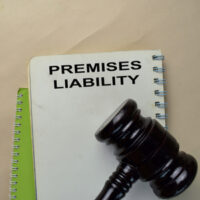What Is Florida’s “Recreational Use” Statute?

Public officials in Florida have a vested interest in private landowners opening up their property to public use to encourage people to get outside and enjoy the state. However, the state’s premises liability law precludes that for many – there is simply no incentive for a private landowner to allow the public onto their land, because they might be liable for any injuries that would result. Florida seeks to change this with a law referred to as the recreational use statute.
Premises Liability Law
Recreational use statutes have their root in an area of law referred to as premises liability. Generally, a landowner (or business owner) has a duty to make their premises safe for those who might visit, though they owe a different level of care to different people depending on their classification. Florida recognizes three different types of visitors:
- Invitees, either business or public. Invitees are visitors who are on the land for a purpose intended by the owner. Business invitees are permitted to be on the premises to shop or otherwise conduct business dealings with the owner, while public invitees are permitted on the land if they are there for the same reason the land is open to the public. In other words, if a person goes to, say, a city museum in order to view the exhibits, they are a public invitee, because the purpose for the museum being open to the public is to allow visitors to view the exhibits.
- Licensees are those who are allowed to be present on property for their own reasons, without an invitation necessarily being tendered. A classic example is a door-to-door salesman, or a child hopping a fence to retrieve a ball or thrown toy.
- Fairly self-explanatory, trespassers are those who are present on the land without being allowed to be there.
Normally, a landowner has a duty to make their premises reasonably safe for those who might visit (except for trespassers; the only duty to them is to refrain from intentionally injuring them). This creates a disincentive for private landowners to allow the public on their land – inspections and repairs create extra work they may not want to perform.
“No Duty Of Care”
The purpose of Florida’s recreational use statute, in a nutshell, is to encourage landowners to “make land, water areas, and park areas” available to the public for outdoor recreational purposes. In exchange, landowners’ liability is limited, with the statute explicitly stating that they owe “no duty of care to keep that area safe” or to give any warning of potential dangers. However, the law only applies to areas that are opened up to the public free of charge – if a landowner charges admission, the recreational use statute does not apply to them.
The other major exception to the recreational use statute is if deliberate, willful, or malicious injury happens to either people or property. If a landowner deliberately makes a conscious decision to refrain from either fixing a danger or warning about it, it is possible that a jury may find this constituted willful or malicious behavior, depending on the reasonable ability of a visitor to find the danger on their own. Each case is different, but it is something to keep in mind if you are ever injured on public land.
Contact A Tampa Premises Liability Attorney
With lockdowns still a fact of life in many areas, the ability to get outside and spend time having fun is an important one. However, if you are injured while on someone else’s land, it is important to understand your options in terms of seeking compensation. The Tampa premises liability attorneys at the Rinaldo Law Group are ready and willing to try and help you with your case. Call our offices today for a free consultation.
Resource:
leg.state.fl.us/Statutes/index.cfm?App_mode=Display_Statute&Search_String=&URL=0300 0399/0375/Sections/0375.251.html
https://www.tampainjuryaccidentlaw.com/private-pool-safety-in-florida/












